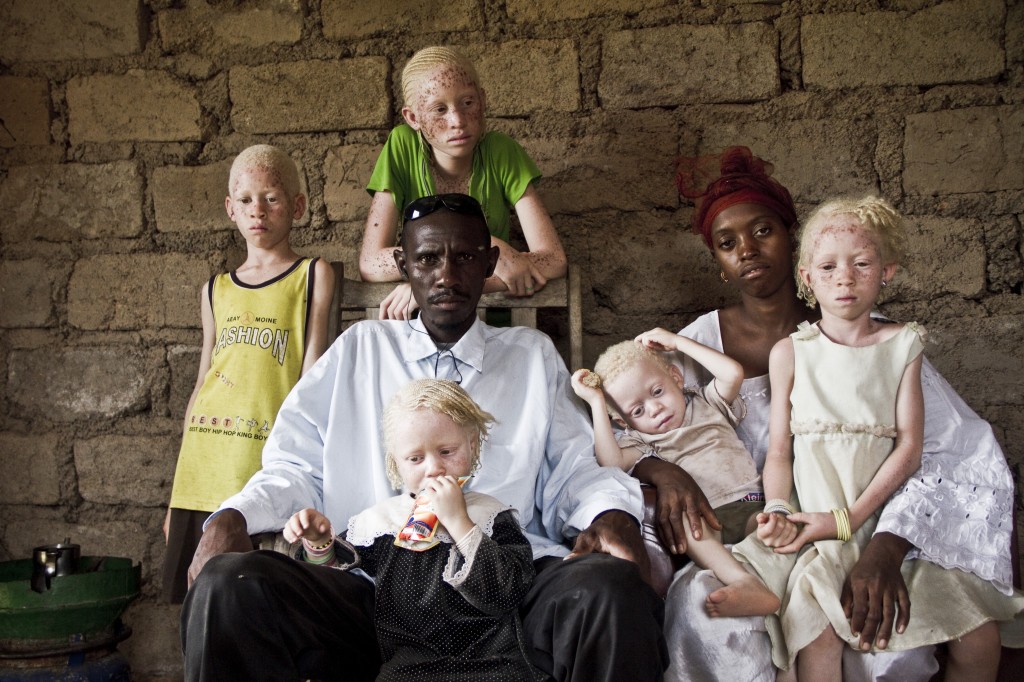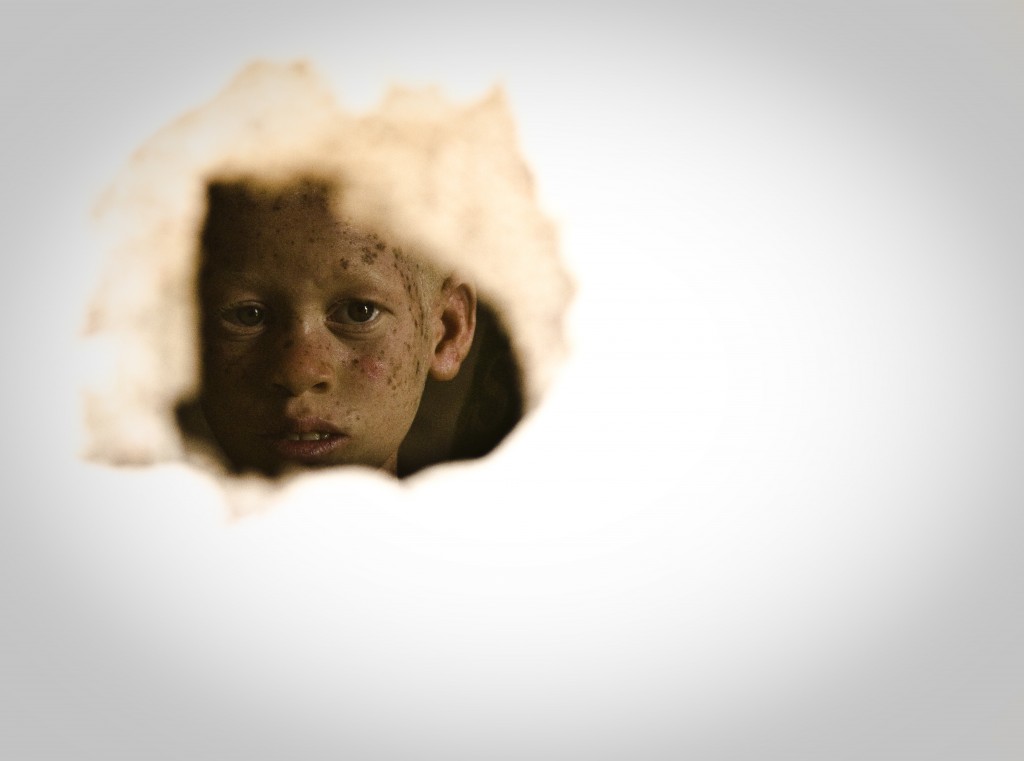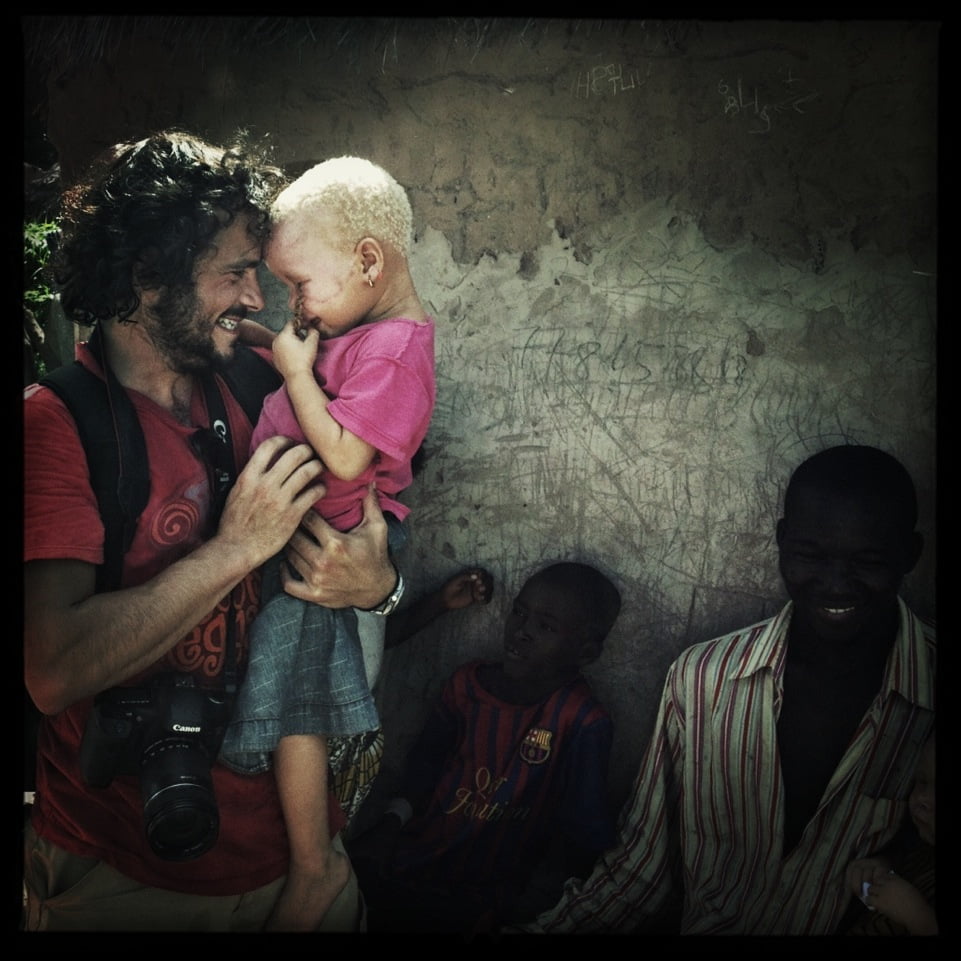We are with Pepo Ruiz Jover, director of the documentary "I have not been mutilated" and "Punne" (Albino), a work that won him the last edition of the International Film and Human Rights Festival.
What experiences and memories did you take away from last year's edition?
The truth is that the memories were very good. The Festival was very well received by the attendees. During the screenings of “Punne” and “I Have Not Been Mutilated”, the room was full of a very active audience who did not hesitate to ask questions, to be interested in knowing more about the precarious situation that exists in some countries. During the talks with me as a director, I was able to share with them my work and my experience in filming, breaking down the barrier that a screen creates between the audience and its director. The organization was great and the quality of the other documentaries was impressive.
What moment or scene would you like to remember from “Punne”?
I don't have any favorite scene, they all have something I like. But if I had to choose one, it would be the last one, Papa Drame reaffirms what he wants, no matter what his condition and his difficult situation as an albino is. There is hope and faith.
You have also made other documentaries on social themes in different parts of the world. Which one has left the greatest mark on you or influenced you the most in your professional life and as a person?
All projects always leave their mark on you and you always learn something. It's part of the magic of this world: You never stop learning. You realize that the world is very small and at the same time very big, that we are all the same and at the same time so different in customs.

In each location you leave a little piece of yourself there, with the people you meet, like an imprint on the place that also marks you as a person. Of the 6 times I have been to Africa, for example, I have never ceased to be surprised by the hospitality, the values, the smiles… On a professional level, every day is a challenge. It is not easy to try to make known the violation of rights that exists around the world, nor is it easy to confront them. What is most comforting is to see the work finished, and an audience that you have helped to realize that you have to get out of your comfort zone, that you have to do something for others. Punne showed me the friendly side of an alarming situation for albinos. It allowed me to live with them and feel a glimpse of what they feel.
What do you think led you to do projects like “Punne”?
I actually think it was Punne who chose me. It was a series of events that, like a ship, led me to make the documentary. Years ago I was researching, making budgets, writing the project, travelling to Senegal… But it was without a doubt the trust that the Foundation for Justice placed in my abilities to complete that concern. Without the Foundation for Justice I think Punne would not have been possible.
What project are you working on now?
I am working on several projects, particularly looking for funding. On the one hand, I would like to do something in Egypt or Syria about religious persecution. On the other hand, a window has opened up to make several documentaries in the Pacific, in the Cook Islands.
 What would you highlight about the Valencia International Film and Human Rights Festival?
What would you highlight about the Valencia International Film and Human Rights Festival?
It is a great initiative that is healthy for society and beneficial for those who suffer a violation of their rights. From my professional point of view, I believe that informing society is the responsibility of communication professionals. Platforms such as the International Festival of Film and Human Rights allow this information to reach the public in an effective way and make a decision regarding a given issue. It is, without a doubt, a widely disseminated cultural event that broadens the social perspective of the world and enriches the cultural panorama of Valencia.

